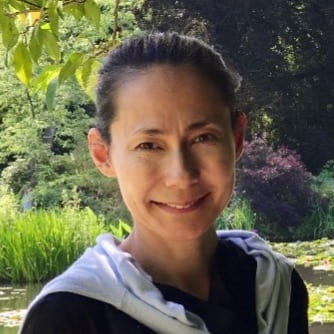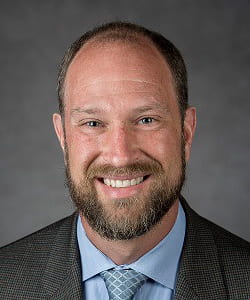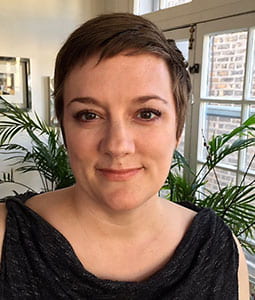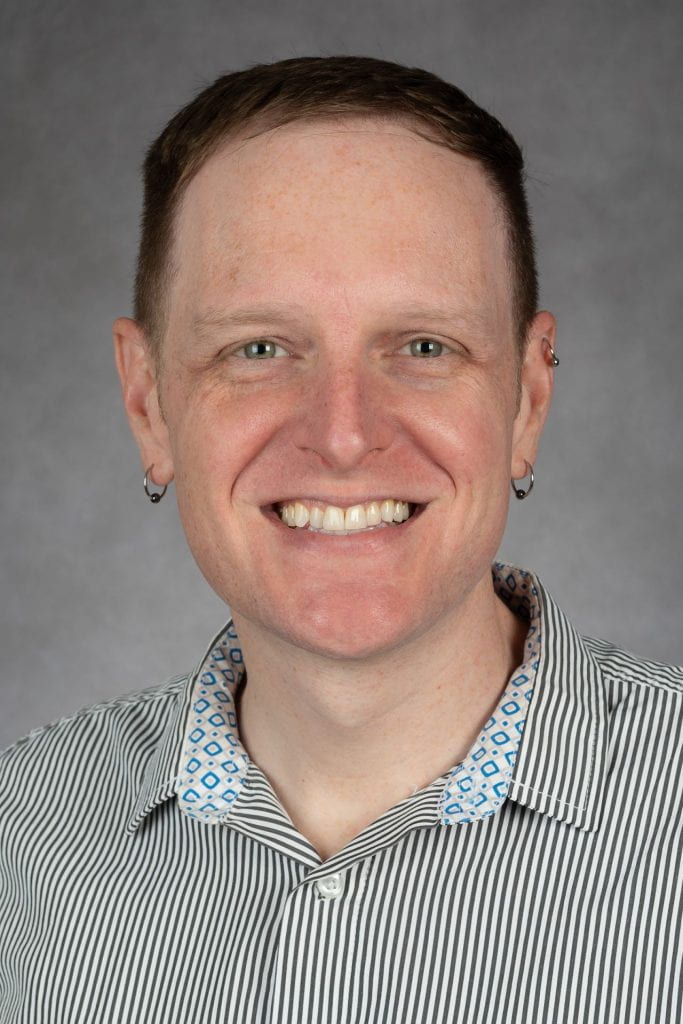In this session, recipients of internal and external awards will share their experiences on how they took their initial ideas for meeting needs in their industry, turned them into successful proposals for funding, and began the process of implementing their projects.
Kathryn Ibata-Arens,
Professor of Political Economy
College of Liberal Arts and Social Sciences

Dr. Kathryn Ibata-Arens is Vincent de Paul Professor of Political Economy, Department of Political Science, DePaul University. A scholar of innovation and entrepreneurship, science and technology policy, and economic development, her award-winning 2021 book Pandemic Medicine: Why the Global Innovation System is Broken and How We Can Fix It analyzes international competition in new drug discovery and access to essential medicines as related to the protection and conservation of plant medicinal biodiversity. Ibata-Arens is also researching the moral economy of patents over living matter, particularly that taken from indigenous community spaces. Her 2019 book Beyond Technonationalism: Biomedical Innovation and Entrepreneurship in Asia uses the lens of venture start-up firms in China, India, Japan, and Singapore, finding a new “networked techno-nationalism” guiding national policy and firm-level strategy supporting competitive growth in frontier technologies. In her journal articles, blogs, policy briefings, podcasts, and books, Ibata-Arens employs such methods as historical-institutional, policy and social network analysis, and original fieldwork-based case studies, contextualized within global politics and markets. She is a recipient of multiple Fulbright fellowships as well as an Abe Fellowship at the Research Center for Advanced Science and Technology (RCAST), Tokyo University. Ibata-Arens serves currently as international board of advisor for the Okinawa Institute of Science and Technology (OIST) Foundation and as (elected) member of the international executive council of the Association for the Advancement of Socio-Economics (SASE). In her free time, she enjoys gardening, hiking, traveling, and tasting global cuisines.
Paul Booth,
Professor of Communication and Associate Dean of Student Engagement
College of Communication

Paul Booth is professor of Communication and Associate Dean of Student Engagement in the college. He is the author/editor of fifteen books, including A Fan Studies Primer (with Rebecca Williams, University of Iowa Press, 2021), Board Games as Media (Bloomsbury, 2021), Watching Doctor Who (with Craig Owen Jones, Bloomsbury, 2020), Fan Phenomena: Doctor Who (Intellect, 2013) and Digital Fandom (Peter Lang, 2010). He is currently enjoying a cup of coffee.
Mark Potosnak,
Professor and Department Chair
College of Science and Health

Professor and chair of Environmental Science & Studies at DePaul University, Dr. Mark Potosnak has degrees from Harvard and Columbia Universities, and he was a fellow in the Advanced Study Program at the National Center for Atmospheric Research. His research focuses on interactions between the plants and air quality. Specifically, he studies how trace gas emissions from plants affect atmospheric chemistry and how climate change will impact this interaction in the future. His field studies have been conducted in temperate, tropical, urban, arid and tundra ecosystems. Dr. Potosnak also deploys low-cost air quality sensors to engage citizen scientists and to explore how spatial patterns of air quality within Chicago are related to socioeconomic drivers.
Session Chair: Kristina Fluty,
Assistant Professor of Movement for Actors
The Theatre School

In addition to serving as an Assistant Professor of Movement for Actors at The Theatre School, Kristina Fluty maintains an active presence as a dancer/choreographer/educator/consultant in Chicago. Her main creative home since 2003 is Molly Shanahan/Mad Shak, where she has been part of developing more than a dozen evening-length world premieres of dance pieces with the Company.
Ms. Fluty holds a Masters in Dance/Movement Therapy and Counseling, a graduate certificate in Laban Movement Analysis, and is a registered Movement Pattern Analyst, all of which contribute to her deep knowledge base that she uses (in addition to her expertise as a theatre artist) to develop methodologies, techniques, and protocols for intimacy facilitation.
In addition to her role as an intimacy facilitator in many productions at The Theatre School, Ms. Fluty has worked at Steppenwolf Theatre Company, Victory Gardens Theater, TimeLine Theatre Company, Remy Bumppo Theatre (in Chicago), and Center Theatre Group (LA). She has not only choreographed and directed creative processes, but has also provided consultation on best practices around theatrical intimacy for theater company administration, designers, and technical crews.
Moderator: Bradley Hoot,
Associate Professor of Spanish & Director
College of Liberal Arts and Social Sciences

Bradley Hoot is a linguist and associate professor of Spanish in the Department of Modern Languages, as well as the director of the interdisciplinary minor in linguistics . He conducts research on bilingualism, using quantitative methods from experimental syntax and psycholinguistics to better understand what speakers know when they know a language, and how that changes when they know more than one.
Prof. Hoot has been a DePaul faculty member for ten years, after receiving his Ph.D. from the University of Illinois Chicago. At DePaul, he teaches linguistics courses in Spanish and English, as well as Spanish language at all levels, and he has worked on projects supporting research and faculty development in his department and across the university. Beyond DePaul, he conducts community outreach with Bilingualism Matters Chicago.
As the 2023 Research and Innovation Leadership Fellow, Prof. Hoot will design a skillsharing program to provide opportunities for training and certification in research skills. This project aims to build capacity for scholarship at DePaul by identifying where researchers could use the support of additional training and creating a plan to meet those needs.
More information about Prof. Hoot’s research, teaching, and service interests is available on his website.